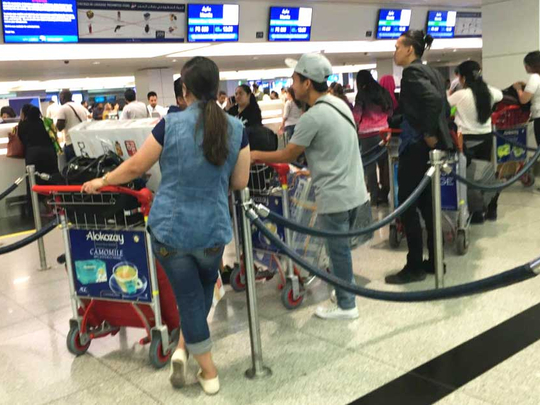
Dubai: Zero-rating of value added tax applies when goods and services are being exported to outside a VAT-implementing GCC state, as well as to international transportation of passengers or goods including a transfer starting or ending in the UAE or passing through its territory.
Air transfer of passengers in in the UAE also incurs zero rates if it is considered an “international carriage” as per article (1) of the Warsaw International Convention for the Unification of Certain Rules Relating to International Carriage by Air 1929.
ALSO READ
UAE gets VAT law ahead of January 2018 tax roll-out
Suppliers within tax threshold must register for VAT
100% tax on tobacco and energy drinks soon in UAE
Sin tax: Why you are getting taxed on your vices
Tobacco tax has expats reconsidering consumption
Zero rating also applies to the supply of air, sea and land means of transport used to transport passengers and goods, as well as the supply of goods and services related to the supply of the means of transport, which are for operating, repairing, maintaining or converting them.
Zero rating also applies to the supply of aircrafts or vessels designated for use in the assistance or rescue by air or sea; the supply of goods and services related to the transfer of goods or passengers aboard land, air or sea means of transport, designated for consumption on board; or anything consumed by means of transportation, any installations or addition thereto or any other uses during transportation.
The supply or import of investment-precious metals, as well as the first supply of residential buildings within (3) years of its completion, either through sale or lease in whole or in part, is equally subject to a zero-rate.
The first supply of buildings specifically designed to be used by charities and buildings converted from non-residential to residential shall also be taxable at the rate of zero.
Zero VAT for educational services
Also subject to the zero rate is the supply of educational services and related goods and services for nurseries, preschool, elementary education, as well as higher educational institutions owned or funded by the Federal or local government, as specified in the Executive Regulation; and, finally, the supply of preventive and basic healthcare services and related goods and services, as specified in the Executive Regulation.
Exempt category
The Decree-Law outlines that certain supplies shall be exempt from tax, namely: the supply of certain financial services as specified in the Executive Regulation, the supply of residential (non-zero-rated) buildings either by sale or lease, the supply of bare land, and the supply of local passenger transport.
As per the Decree-Law, Payable Tax for any Tax period is calculated as the total Output Tax (i.e. the tax that the taxable person has charged on his supplies) during the said period less the total Input Tax recoverable by that Taxable Person over the same Tax Period (i.e. the tax that he has paid on supplies to him or imports by him).
The Executive Regulation of the Decree-Law shall specify the timeframes and procedures of payment of tax declared in the Tax Return as payable.
If a Taxable Person acquires or imports a Capital Asset, the Taxable Person must assess the period of use of that asset and make the necessary adjustments to the Input Tax paid pursuant to the Capital Assets Scheme.
Tax records
All businesses in the UAE will need to record their financial transactions and ensure that their financial records are accurate and up to date. Businesses that meet the minimum annual turnover requirement (as evidenced by their financial records) will be required to register for VAT. Businesses that do not think that they should be VAT registered should maintain their financial records in any event, in case we need to establish whether they should be registered.
Taxable Persons are mandated by the law to retain the records relating to Capital Assets for at least ten years.
A registrant making a taxable or deemed supply shall issue an original tax invoice and deliver it to a recipient of goods or services or keep it in his records in the event of a lack of recipient.
Any Person who receives an amount as Tax pursuant to any document issued by the Person must pay this amount to the Authority. A registrant shall issue a tax invoice within 14 days of the date of supply.
The Decree-Law specifies that the Executive Regulation shall include the information to be included in the Tax Invoice; conditions and procedures required to issue an electronic Tax Invoice; instances where the Registrant is not required to issue a Tax Invoice to the Recipient of Goods or Services; instances where other documents may be issued in place of the Tax Invoice, as well as their specifications and the information to be included therein; and instances where another Person may issue a Tax Invoice on behalf of the Registrant supplier.








